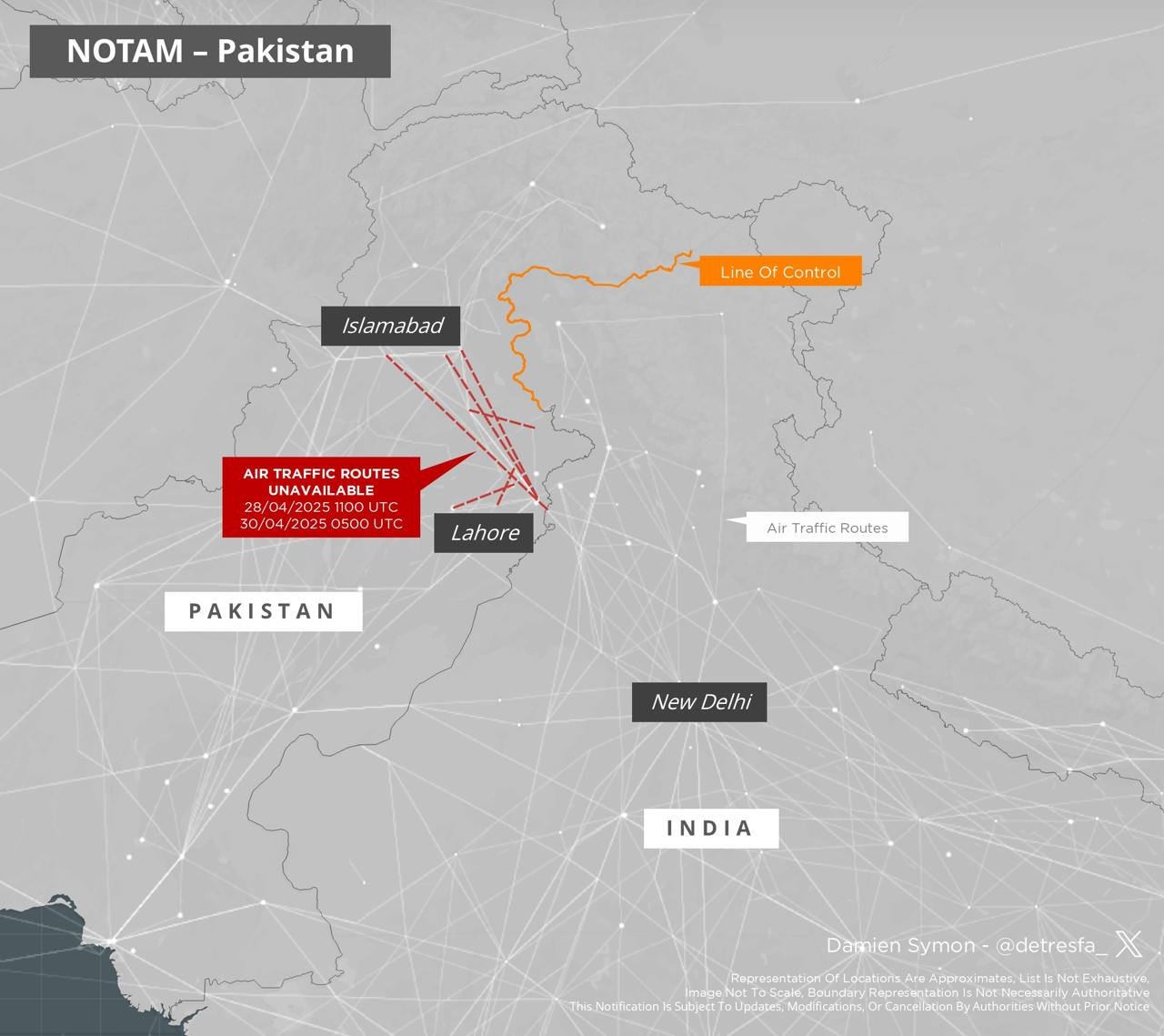Nuclear Tensions Rise: India and Pakistan Refuse to De-escalate Following Kashmir Attack
Executive Summary
Tensions between India and Pakistan have escalated dramatically after the deadly Pahalgam attack that left 26 civilians dead in Indian-administered Kashmir. India responded by suspending the Indus Waters Treaty, closing the Attari-Wagah border, and expelling Pakistani diplomats. Pakistan, for its part, has accused India of fabricating allegations and preparing for a military incursion, warning that any existential threat could trigger a nuclear response. Meanwhile, Pakistani security forces killed 71 militants attempting to infiltrate from Afghanistan, alleging foreign backing for the attacks. China has sided firmly with Pakistan, calling for an impartial investigation and restraint, while the United States has urged a “responsible solution” as the two nuclear-armed neighbors continue to exchange fire across the Line of Control.
Analysis
The Kashmir attack has triggered a sharp and dangerous deterioration in India-Pakistan relations. India accuses Pakistan-based militants of orchestrating the Pahalgam massacre targeting Hindu tourists, citing cross-border terrorism links. Pakistan has denied involvement, instead pointing fingers at India for using the attack as a pretext to intensify regional hostilities.
The diplomatic fallout has been swift and severe. India suspended its obligations under the Indus Waters Treaty and ordered Pakistani officials and visa-exempt nationals to leave. In retaliation, Pakistan closed its airspace to Indian flights and suspended bilateral agreements, including those governing the Line of Control. Border clashes have intensified, with daily exchanges of fire reported for four consecutive nights.
In an alarming development, Pakistani Defense Minister Khawaja Asif warned of a possible Indian attack and stated that Pakistan’s nuclear arsenal could be used if its existence is threatened. The Pakistani military also claimed to have thwarted major infiltration attempts from Afghanistan, killing 71 militants described as “Khwarij,” hinting at Indian backing without direct attribution.
China has thrown its weight behind Pakistan, voicing support for Islamabad’s call for an independent probe into the Pahalgam attack. Chinese Foreign Minister Wang Yi emphasized the need for both India and Pakistan to “exercise restraint” and reaffirmed Beijing’s strategic support for Pakistan’s sovereignty and security interests. Meanwhile, India has banned multiple Pakistani media channels on YouTube, citing national security concerns, and mobilized additional troops to Kashmir.
Global powers, including the United States and United Kingdom, are urging calm. Washington emphasized a “responsible solution,” reflecting deep unease about a possible escalation between two nuclear-armed nations at a time when global stability is already under strain. While India continues to hunt the perpetrators domestically, the regional atmosphere remains volatile, with even minor incidents at the Line of Control now carrying the risk of a broader conflict.
The Kashmir situation has once again exposed the fragility of South Asia’s security framework, with nationalistic fervor, disputed borders, and militant proxies pushing India and Pakistan toward the brink. Calls for Kashmiri self-determination remain buried beneath the din of militarization and recrimination, leaving the region’s civilians caught in the crossfire yet again.
Sources
AP News: Pakistani troops kill 54 militants attempting to sneak into Pakistan from Afghanistan
Hindustan Times: China vows support to Pakistan, calls for restraint after Pahalgam terror attack
Newsweek: Pakistan fears ‘imminent’ Indian attack, warns of nuclear response
Al Jazeera: India and Pakistan continue to trade fire across Kashmir border
